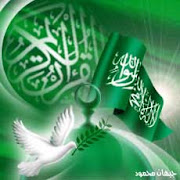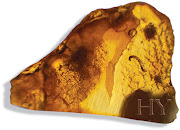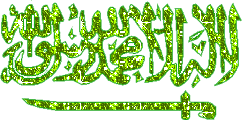
In Malaysian history, the name of Dr. Burhanuddin al-Helmy is hardly ever seen and known. His contributions, works, ideas, thoughts and many more are being kept silence. But lately Alhamdulillah, many scholars are giving much emphasize and doing research about Dr. Burhanuddin and his associates. The role played by Dr. Burhanuddin during pre-independent, during and post independent are very significant and should be noted by all people in Malaysia particularly because the truth should be presented in a very decent way. Moreover, when we look thoroughly about his ideas, writings, and activism, there are three major themes which he tried to emphasized and achieved. According to Kamarudin Jaafar, the major themes of Dr. Burhanuddin are: (1) Islam, (2) Malay Nationalism, and (3) Independence (Kamarudin Jaafar 2000: 9). It is obvious that the education of him as well as the family background of him had a great influence and impact upon him.
'
In this short and brief explanation about Dr. Burhanuddin al-Helmy, in the first chapter I will present details about his life background. It is important for any individuals to know the background of a person so that we could make a fair judgment and understands the environment that he lived in. For the case of Dr. Burhanuddin, his backgrounds of life are very interesting and amazing to learn.
'
For the second chapter, I will focus and try to elaborate the role of Islam in his political activism, thoughts and some of his writings. He played and important role in many political parties like Parti Kebangsaan Melayu Malaya (PKMM), Majlis Agama Tertinggi Se-Malaya (MATA), Hizbul Muslimin, PUTERA-AMCJA, Parti Rakyat Malaya (PRM), Parti Islam Se-Malaya (PAS) and many more. Moreover, it should be noted that Dr. Burhanuddin wrote many books about his ideas compared to his counterparts who probably never wrote at all.
'
In the third chapter, I will draw some major conclusion about Dr. Burhanuddin and some analysis about him overall.
'
Chapter 1
A Brief Background of
Dr. Burhanuddin al-Helmy
Dr. Burhanuddin real name is Burhanuddin bin Haji Muhammad Nor. He was born in Changkat Tualang, Kota Bharu, Perak on the 29th August 1911. Some scholars said that he was born on 26th November 1911 (Ramlah Adam 1999: 124). His father, Haji Muhammad Noor worked as a farmer and was a very pious man. It is reported that Haji Muhammad Noor lineage was from a royal family of Sumatra. He was also a student to a prominent religious leader in Makkah and Sheikh Mohammad Khatib Minangkabau (M. Fuzi Omar 2005: 290). Dr. Burhanuddin received the title of ‘al-Helmy’ which means a person who is gentle, tranquil and never angry because of his late father was referred also as ‘Abi Halim’ by his friends due to his kindness, softhearted and calm person. Apart from the title of ‘al-Helmy’, Dr. Burhanuddin was also referred as ‘Pak Doktor’ by many people due to his profession as a homeopathy doctor. Dr. Burhanuddin mother’s name was Sharifah Zahrah binti Habib Osman. She was from a mixed parentage of Malay-Indian Muslim and she was also regarded highly in her society.
'
His parents played an important role in shaping the mind Dr. Burhanuddin in the early stage of his life. He was brought up in an Islamic ambiance by his own parents, since his father was a very pious man. He received his formal education in Sekolah Melayu Behrang Ulu, Sekolah Melayu Bakap until standard three and then moved to Sekolah Melayu Kota Bahru. He realized his true potential and tendency to learn religious knowledge compared to other knowledge. After he finished his Malay School education, in 1924, he was sent to Sungai Jambu, Sumatra to learn Islamic knowledge. It should be noted here that in 1924, while he was at the age of thirteen years old, he made his first contact and learned with several religious Kaum Muda (Reformist group). He was indeed had been touched and influenced by the movement of Kaum Muda and later on, shaped his thought and action. He explained this when he said:
'
“When I was learning in Indonesia, I was able to learn the Dutch language and my religious teachers were those of Youth Faction who had the progressive understanding of Islam. From then, my thought was formed after receiving the modern explanation and approach.” (Burhanuddin 1949:37)
'
After he completed his studies in Sumatra for two years and master the Dutch language, he went back to Tanah Melayu to futher his study in Sekolah Pondok located at Pulau Pisang, Jitra, Kedah. He didn’t stay long in the Sekolah Pondok because he felt that the teaching methodology of Sekolah Pondok didn’t suit his style and he was uncomfortable with it. Immediately his father transferred him to Madrasah al- Mashor al-Islamiah, Pulau Pinang in 1927. He was only sixteen years old when he was admitted to Madrasah al-Mashor in 1927. At this period of time, he was able to master Arabic language within a short period of time.
'
In 1928, he went to India to further his studies and to gain experience by doing expedition. Dr. Burhanuddin was exposed to the Independence movement made by Mahatma Gandhi and other prominent individuals like Pandit Nehru, Mohd Ali Jinnah and many others while his staying in India. It can be said that the exposure he experienced in India, had made him aware and realized the importance of independence when he came back to Tanah Melayu. He obtained a degree in homeopathy at Ismaeliah Medical College, New Delhi. His passion of knowledge is very fascinating. He was able to master some languages like English, German, Dutch and French while he was studying in India. Apart from that, he also learned about psychology of teaching, metaphysics, spiritual knowledge, philosophy and comparative religion (M. Fuzi Omar 2005: 291). It is also reported that he did his Ph.D dissertation in Aligarh Muslim University and after completed his studies, he traveled to Middle East Countries and came back to Tanah Melayu in 1935 (he was only twenty four years old).
'
In his return to Tanah Melayu, he taught Arabic at Al-Junid Arabic School in Singapore and during this period, he was also an editor to a magazine called Taman Bahagia. Within just one and half an hour of the first publication, he was jailed for a period of six months. The British regime in Tanah Melayu felt that his writing could initiate some unwanted behavior among the Malays during those times. After he had been released, in 1939, Dr. Burhanuddin and with a help of Dr. Rajah, opened homeopathic clinics in Singapore and Johor Bharu but lasted only in 1942.
'
Dr. Burhanuddin was also active in Jam’iyyah al-Islamiyyah Singapore, as its Secretary. In 1937, he represented his organization in a debate with the traditional ulema at Sri Cemerlang Palace, Kelantan. The issue that was to debate was about dog saliva. He went to Kelantan with Haji Abbas Mohd Taha who was the Grand Judge of Singapore (Kamaruddin Jaafar 2000: 17).
'
It should be noted that during the Japanese occupation in Tanah Melayu, Dr. Burhanuddin was appointed as an advisor of the Malay Custom and Culture by the Japanese. Because of his high position, he used his authority to protect and assist a well-known Islamic religious school, which can be considered important in the development of history of Tanah Melayu (Malaysia) which is Ma’ahad al-Ehya as-Sharif, Gunung Semanggol Perak. Regarding to this religious school, Dato’ Onn Jaafar, as the President of UMNO always referred Ma’ahad al-Ehya as-Sharif as a threat (danger) from the mountain (Ramlah Adam 2004: 323)
'
Chapter 2
The Role of Islamic Values in His Political Activism, Thoughts and Writings
'
In one of the research made by Professor W.R. Roff, he focused three elitist groups that tried to initiate nationalism sentiment. One of the groups is the Islamic reformist (Arab educated), radical intellectual (Malay educated) and the Malay administrators (English educated) whereby the majority of this group is from Malay aristocrats and Royal family (W.R. Roff 1975: 268). Roff argued that the system of education produced the three types of elitist group But in the case of Dr. Burhanuddin, it is hard for us to identified to which group he belongs too. This is because of his attitudes and political participation which involved two major streams of Malay nationalism which are Islam and so called ‘leftist’.
'
Dr. Burhanuddin joined Kesatuan Melayu Muda (KMM) in 1939. He was introduced by Mustapha Hussain but he did not participated very actively in this organization. According to Ramlah Adam, the main reason why the young Malays established KMM is because of their high political awareness (Ramlah Adam 2004: 3). But in 1940, many of KMM leaders were under arrest by the British regime like Ibrahim Haji Yaacob, Sutan Djenain, and Ahmad Boestamam which eventually disabled the movement of KMM.
'
During the Japanese Occupation in Tanah Melayu, he was appointed as the ‘Advisor on Malay Custom and Culture’ which was located in Taiping, Perak. This position of him can be considered the highest ranking officer for Malays. The interesting part is that, he managed to organized two Islamic congress during the Japanese Occupation and prepared whatever it may seem necessary for independence of Tanah Melayu. He was also able to protect and assist Ma’ahad al-Ehya as-Sharif, Gunung Semanggol Perak from any harm made by the Japanese soldiers.
'
Kesatuan Rakyat Indonesia Semenanjung (KRIS) was established by Onan Siradj and Ibrahim Yaacob in 1945 after the Japanese regime had abolished KMM. KRISS received its main support from the Japanese regime and give independence to KRIS.
'
It can be said that Dr. Burhanuddin role in Parti Kebangsaan Melayu Malaya (PKMM) is the most interesting part in his political activism. Many members of PKMM were from KMM and supported the idea of Melayu Raya/Indonesia Raya. Apart from that, many of its leaders are associated to the communist. Even though there are some true facts about the role of communist and socialism in PKMM, but Dr. Burhanuddin was able to neutralize these elements and have strong in his idealism and action.
'
Dr. Burhanuddin became Parti Islam Se-Malaya (PAS) members on 14th December 1956 and became the President of PAS on 25th December 1956. He was approached by some PAS leaders like Haji Hassan Adli and others and guarantees that the leadership of PAS will be trusted to Dr. Burhanuddin (M. Fuzi Omar 2005: 300). Under the leadership of Dr.Burhanuddin, the popularity of the party became famous and being accepted by the Malays as well. In 1956 and 1959, the seat of presidency was being contested and Zulkifli whom opposed him in the presidency post. No doubt that Dr. Burhanuddin personality, appearance and attitude had won the heart of many PAS members and thus elected him as the new President of PAS.
'
Thoughts and Writings of Dr. Burhanuddin al- Helmy
When discussing about Dr. Burhanuddin al-Helmy, the theme of Islam is very apparent in his daily life. He wrote many books about politics, Tasawwuf and medicine. Compared to his counterparts in politics during his period, it is obvious that Dr. Burhanuddin wrote many books, wrote his own speeches and spread his own thoughts to the masses. Among the famous books that he wrote is Sejarah Perjuangan Kita, Falsafah Kebangsaan Melayu, Ugama dan Politik dan Ideologi Politik Islam.
'
In his book (Sejarah Perjuangan Kita; published in 1946) in chapter VI, he quoted many verses from the Quran. This means that his worldview is based on Islam and he is trying as best as he could to spread the message of Islam. He emphasized a lot about faith, body, nation and territory. All of these elements are interrelated and vital to the Malays. We must get independents first in order to established Islam system of life. If we do not get independent, we do not control our country, it is useless to promote the message of Islam. He also added that politics should be compatible to Islam, and not Islam should be compatible to politics.
'
In his another book entitled Falsafah Kebangsaan Melayu, he gave emphasize on the topic of “Kebangsaan Dalam Islam”. He wrote:
'
“Islam memandang kebangsaan itu sebagai suatu alat bukan tujuan. Kebangsaan hendaklah mengambil tempat yang sederhana dan bulat sebagai suatu lambang yang boleh menarik dan menyatukan suatu bahagian tenaga untuk mencapai cita-cita mulia yang besar dan abadi, sebagimana Islam memandang dunia bukan tujuan tetapi hanya satu alat atau tunggangan yang menyampaikan ke akhirat”. (Burhanuddin 1954)
'
It is clear that Dr. Burhanuddin viewed nationalism as not an end but as a medium to the hereafter. And even he stated that nationalism he perceived is very wide and not rigid compared to others understanding of nationalism. But in the end, Rustam A. Sani argued that nationalism movement in Tanah Melayu as a movement of ‘failed nationalism’ because it is not based on Malay itself.
'
Chapter 3
Conclusion
'
Dr. Burhanuddin major theme is always been Islam. In his early childhood until he holds the post of President of PAS, the political journey of his is always interesting. In his message to the masses, he gave many examples from Quran, hadith and even some historical settings which are relevant to the subject. Ahmad Boestamam in his one book also acknowledge to role of Islam in Dr. Burhanuddin thought. He never gave up easily even though he was capture, tortured, harsh criticisms and accusation, but he never gave up hope easily and perceived it as a challenge from Allah S.W.T.
'
From what I could understand, he showed a good living example between Islam and politics. In every political organization he joined and even any movement, his manifestation of Islam is always noticeable. Some would say that KMM is based on true nationalism ideology but Dr. Burhanuddin joined and assist the organization. Some even labeled PKMM as communist and socialist party but when we looked deep through, I would say that it is not true. Dr. Burhanuddin role in these various organizations had a huge impact on Tanah Melayu political atmosphere be it in pre-Independence or post-Independence. Last but not least, I would like to quote few words of Dr. Burhanuddin which I found it very touching and interesting;





















